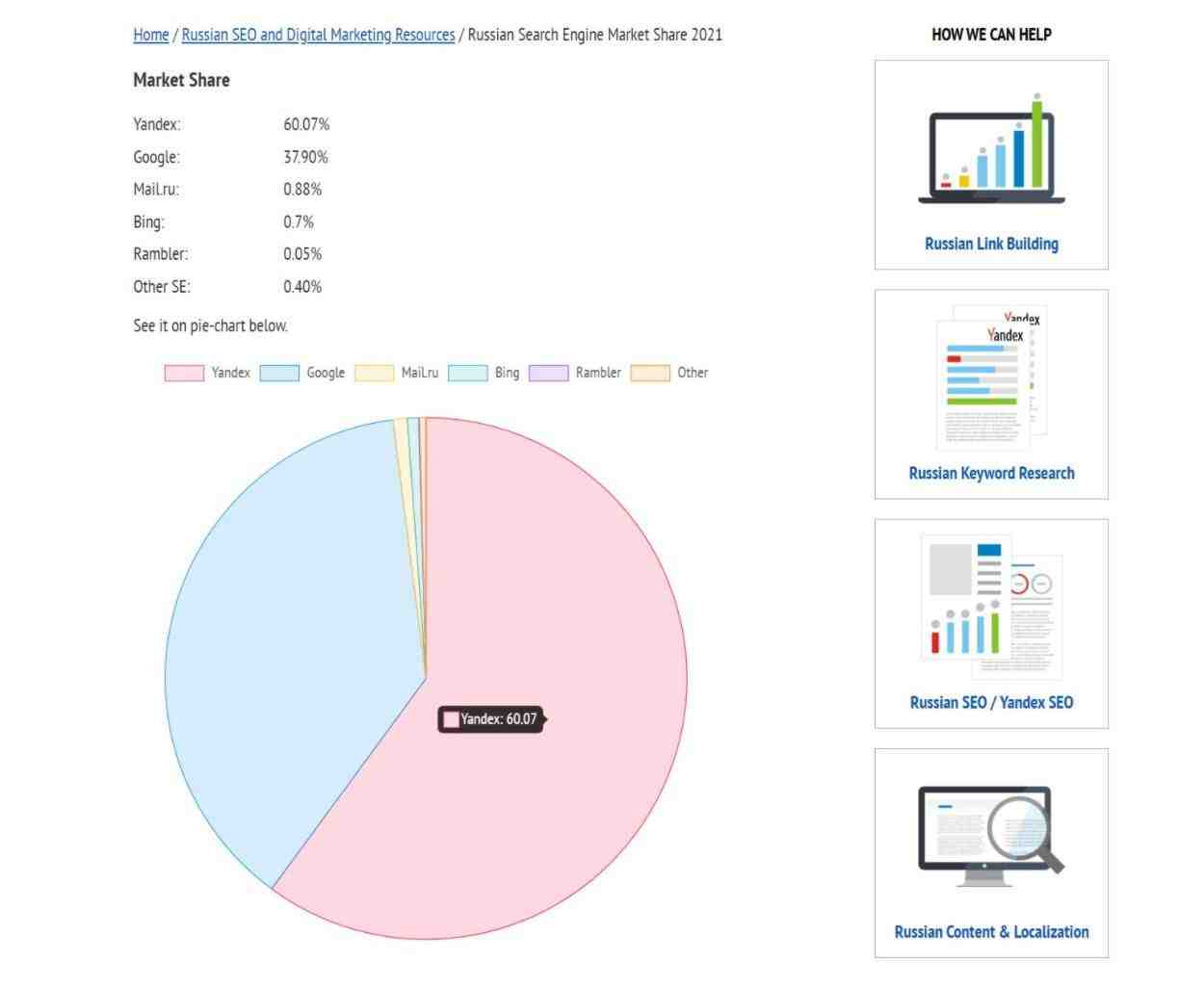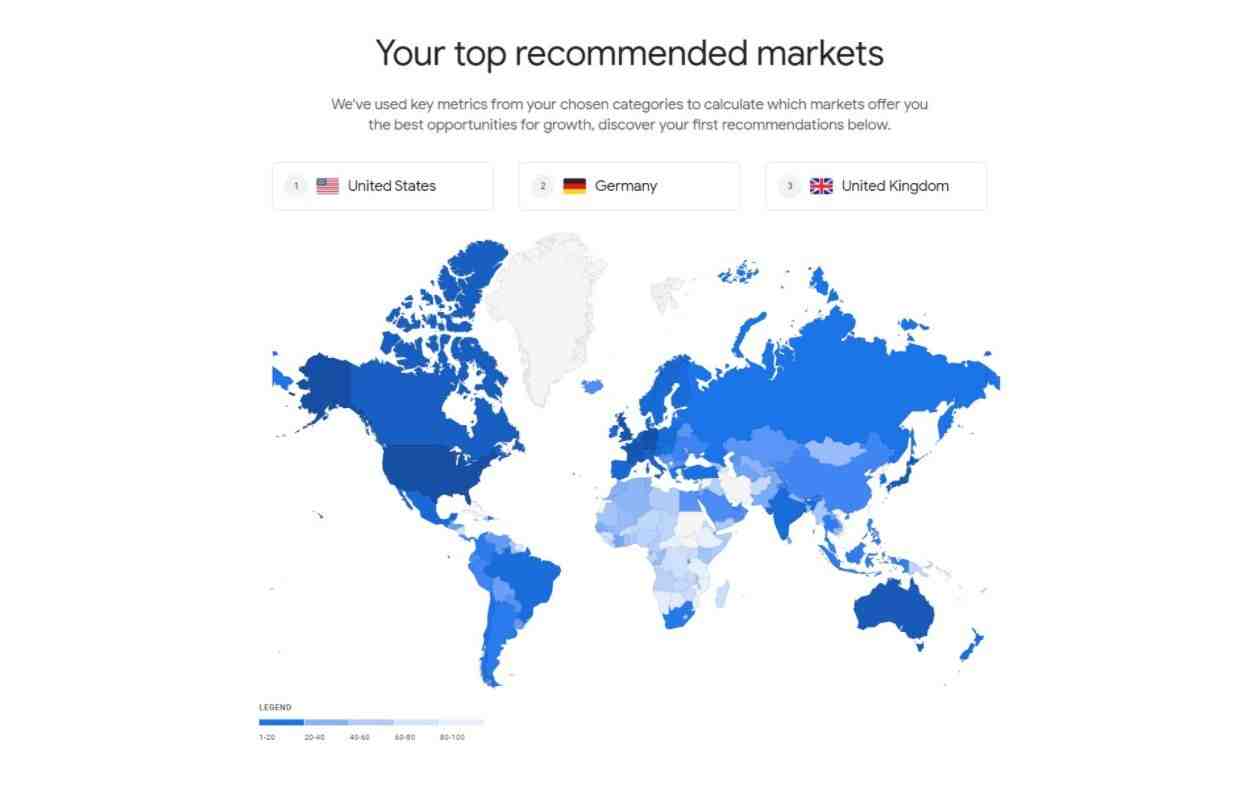4 Key Areas Of International SEO Focus To Enter A New Market
It makes sense that companies that are successful enough to grow to the corporate level could one day go international.
For the entrepreneur, it’s an exciting and intimidating prospect. You have the chance to bring your brand and your offers to customers in different countries.
On the one hand, this effort will be to replicate the success you’ve had on your own.
On the other hand, trading in the United States will be different from trading in France, Germany or Australia.
Your website will play an important role in serving your international customers, which means international SEO is a must.
At the most basic level, practicing international SEO means targeting specific countries and languages on your website.
But it’s not enough to simply have these pages for international users to find. How will you optimize for better placement and greater visibility on Google and other search engines?
Make sure you focus on these 4 key areas of international SEO to give your website the best possible chance in new markets.
1. Establish The Right URL Structure For International Pages

Corporate and large-scale websites will have a ton of pages, probably hundreds or thousands. When you’re in the ecommerce market, those product and category pages grow quickly.
One of the main steps you need to take if you want users from another country to find what they want on your website is to design your international pages for the right audience using the proper country code URL structure.
Let’s say you’re a US-based online consumer electronics retailer and you’ve done the research to show that you can increase your profits if you expand into the UK market.
You’ve already done all the SEO for your US-based pages, but now you need to create and optimize pages for a UK audience, i.e. pages that Google will show to users searching in the UK.
The first and perhaps the most important step is to create UK-centric web pages, built with URL structures that mean the content is aimed at UK users.
There are a few ways to do this. Many international sites choose to encode their international URLs with a ccTLD, which in this example would be “.uk”.
You will have to decide for yourself which approach is best.
For example, you may believe that establishing a separate domain for each new country you expand to is a bad idea. Your organic traffic data will be split across your sites, preventing you from seeing everything at a glance.
Subdomain and subfolder routes allow you to view international versions of your site separately, while still allowing you to collect organic traffic data in one place.
Either way, you need to tell search engines which version of your site is intended for each country to rank for the right audience. Plan a way forward with this before doing anything else.
2. Go All-In On Page Experience For International Users

Country-specific URL structures are good for getting your international pages to rank for the right audience.
But let’s say you get the “.uk” subdomain version of your site to rank for UK users. These users come to the site and notice that you are using American English instead of British English.
Maybe that’s not a big deal right now, but it’s still a little off-putting.
So, when checking their prices, these UK users can only see the costs in US Dollars.
They will need to convert dollars to sterling and figure out what they owe in order to make a purchase. But why put your potential customers on it?
As with traditional SEO, international SEO needs to consider user experience.
Whether you are serving web pages to British audiences who share the English language with the United States or Italian users who speak a completely different language, make sure you translate all of your website content for your intended users.
You can use any translation tool to do this, but the story doesn’t end there.
You’ll want to know if Google shows this version of your page to the right audience by adding hreflang attributes to your pages.
Hreflang tags are signals that tell Google the language used on the page. Why is it important?
Because then, Google will show that version of the page to users who come from IP addresses that speak that language.
Of course, keep in mind that languages are not necessarily confined within national borders.
If you create German versions of all your pages specifically for German-speaking people, remember that German is spoken in Germany, Switzerland, Belgium and Luxembourg.
You don’t want Google to leave these last three countries out with search results showing pages in German only for people in Germany.
To solve this problem, you can add hreflang tags for specific countries.
In that case, you would have tags for the other countries using their letter abbreviations.
So German itself would be “hreflang=de”, whereas you would use “hreflang=de-ch” for German speakers in Switzerland.
Regarding currencies, you should check the currency options in Shopify, Woocommerce, or the platform you use to select the currencies you will accept.
Ideally, you will be able to accept any national currency of the destination country.
You may also want country-specific features on each translated page of your site to address user concerns about tax, customs, and shipping.
3. Be Aware Of International Keyword Differences

When you are a large corporate site that expands to different countries, you also need to be well aware of the differences in keyword trends between countries.
There is the matter of keywords appearing in completely different languages in other countries. Still, even in countries that speak the same language, terms may differ (“elevator” in the US, “elevator” in the UK).
You can use tools like Semrush and Ahrefs for keyword research according to search volumes in different countries.
This is where things can get a little tricky. Depending on local elements like culture, weather, language and history, your customers may have their own common words for things.
Take the example of US English speakers who say “bicycle” in casual conversation much more often than they say “bicycle”.
You will need to take the time to research terms used in your target countries and translate them properly when needed if you want your pages to rank for the most relevant terms.
With corporate sites and other large-scale sites, this search can take considerable time. It’s good to know you can do this before committing to international expansion.
4. Pursue Backlinks From Country-Specific Domains

The last point to make is that as a corporate site that attracts users in many countries, you want backlinks to help with this effort.
If you have SEO experience, you already know the benefits of high-quality backlinks.
The caveat to remember with international SEO is that your backlinks must come from sites with the same ccTLD as the version of the site you are showing people.
So if you have a Japan version of your site, it makes sense that most of your backlinks are from sites with “.jp”.
This makes sense from a user experience point of view.
Japanese users who follow these external links and find the Japanese version of your site will not be shocked to suddenly find an English page.
Your international link building strategy will be based on the products you sell and the market sectors where you sell them. Only you will know the best strategy to acquire links to your pages from the appropriate domains.
Just think, “What types of backlinks would Google most associate with my site’s trustworthiness?”
International Enterprise SEO Needs All Your Attention
It takes a lot of time and effort to get your international SEO right, but if you are a business expanding across national borders, make sure your website is working for you and not against you.
Put the work into creating amazing experiences for your international customers, and this shift could end up paying dividends for you for years to come.
Featured Image: Pixels Hunter/Shutterstock
How can I improve my SEO knowledge?
Using this beginner’s guide, we can follow these seven steps to successful SEO:
- Crawl accessibility so engines can read your site.
- Attractive content that answers the searcher’s query.
- Keyword optimized to attract searchers & engines.
- Great user experience including fast loading speed and attractive UX.
What knowledge is needed for SEO? Knowledge of HTML and CSS is almost mandatory, so don’t neglect them. Among other important SEO skills is keyword research, which is a robust SEO strategy when relevant and done right.
Why international SEO is important?
International SEO ensures that search engines can easily identify which countries your business wants to target. It also shows search engines which languages you use to attract customers from different countries or speak different languages.
How does international SEO work? International SEO is the process of organizing and optimizing your web pages to allow search engines to identify the countries you are targeting, the specific content and language of each user in a given location.
Why is SEO still important?
SEO is a much more effective long-term strategy than PPC as SEO rankings are more stable. SEO is considered to have more long-term benefits than PPC or any other form of paid advertising. Another advantage of SEO is that it is considerably more cost-effective than PPC when you look at its long-term effectiveness.
Is SEO still important in 2021?
So is SEO still a good investment in 2021 and beyond?! Short answer: YES! SEO is more important than ever! It is still one of the most potent digital marketing strategies that generate long-term results.
Why is SEO still so important?
SEO stands for Search Engine Optimization. In the simplest terms, good SEO optimizes your online visibility. This means that the more people view your website, the more your online traffic will increase and the greater your chances of providing your product or service to a greater number of people.
Why is SEO important in 2021?
SEO research allows you to understand user interest and intent and create content that addresses and captures that intent. Content distribution. Focusing on SEO and building legitimate links drives you to develop relevant and useful content that people want to share and provide digital word of mouth.
Is SEO still relevant in 2020?
While some traditional marketing methods may be becoming obsolete, SEO is here to stay in 2020. Whether you invested in SEO early on or are just starting out, it can still be a huge traffic and leads booster for your website.
How is international SEO different?
Think of international SEO as geo-targeting, but instead of optimizing your site to drive traffic from your city or state, you optimize it for different countries and languages.
Is SEO different in different countries?
“SEO is not really something that differs globally, but extends globally,” says Backer. “In the case of HubSpot, we have an SEO strategy that is native to each region, but also follows a series of universal SEO techniques that marketers need to know to successfully do international SEO.”
What is called domain name?
A domain name is a string of text that maps to a numeric IP address, used to access a website from client software. In plain English, a domain name is the text that a user types into a browser window to access a specific website. For example, Google’s domain name is ‘google.com’.
What is domain in domain name? A domain name (often called simply a domain) is an easy-to-remember name that is associated with a physical IP address on the Internet. It is the unique name that appears after the @ sign in email addresses and after www. in web addresses.
What is domain name in simple meaning?
A domain name is an Internet resource name that is universally understood by web servers and online organizations and provides all pertinent destination information. To access an organization’s web-based services, site users must know the precise domain name.
What is domain name explain with example?
Domain names are used to identify one or more IP addresses. For example, the domain name microsoft.com represents about a dozen IP addresses. Domain names are used in URLs to identify certain web pages. For example, in the URL http://www.pcwebopedia.com/, the domain name is pcwebopedia.com.
What is domain name with example?
Domain names are used to identify one or more IP addresses. For example, the domain name microsoft.com represents about a dozen IP addresses. Domain names are used in URLs to identify certain web pages. For example, in the URL http://www.pcwebopedia.com/, the domain name is pcwebopedia.com.
What is domain name explain?
A domain name refers to your website address. This is what users type into a browser’s search bar to go directly to your site. A domain name is unique and cannot be shared between different websites.
What is your domain name mean?
A domain name is the name of your website. A domain name is the address where Internet users can access your website. A domain name is used to locate and identify computers on the Internet. Computers use IP addresses, which are a series of numbers.
What is a domain name name?
A domain name refers to your website address. This is what users type into a browser’s search bar to go directly to your site. A domain name is unique and cannot be shared between different websites.
What is a domain name and what is it used for?
Domain names are used for different purposes, including application-specific naming and addressing, and in various network contexts to establish: Simple identification of hostnames and hosts. Hostnames appear as an element in Uniform Resource Locators (URLs) for Internet resources such as websites.
What is a domain name example?
For example, the domain name example.com can be translated to the physical address 198.102. 434.8. Other examples of domain names are google.com and wikipedia.org. Using a domain name to identify a location on the Internet instead of a numeric IP address makes it much easier to remember and type web addresses.
What is local and international SEO?
Global SEO focuses on broadly generic keywords to drive traffic to a website. In contrast, Local SEO, the level of competition for the products or services you are providing on your website, will not be the same as International SEO. Optimization for Local Search Engines focuses on a limited region and geography.
What is international SEO? International SEO is the process of optimizing your website so that search engines can easily identify which countries you want to target and which languages you use for business.
What is local SEO?
Local SEO is a search engine optimization (SEO) strategy that helps your business to be more visible in local search results on Google. Any business that has a physical location or serves a geographic area can benefit from local SEO.
What is local SEO marketing?
Local SEO is a digital marketing strategy that helps local businesses and service businesses outperform competing businesses on Google in the same region. While similar to traditional SEO, there are many unique challenges to face and tactics to employ that are specific to local searches.
What is local SEO vs SEO?
While traditional SEO focuses on improving your site’s visibility on a national or global scale, local SEO allows you to capture local search territory to connect with searchers in your area. SEO and local SEO use many of the same strategies.
How does local SEO work?
How does local SEO work? At a high level, local SEO works like “normal” Google search. When someone does a search, Google checks its index to provide the best results for that person’s query. What makes local SEO unique is that Google uses a different set of ranking factors to rank local search results.
What is the difference between international and local SEO?
| Factors | local SEO | international SEO |
|---|---|---|
| content needs | Low as you are only focused on one region | High as you need to create unique content for multiple sites even if you are selling the same services |
What is the difference between local and global SEO?
Local SEO focuses on building online presence in a local area, while global SEO focuses on building topical presence anywhere in the world. Both types of SEO are valuable in their own way.
What is the difference between an ecommerce SEO and a local SEO?
Local SEO focuses on fewer website service pages and for the specific region or area. On the other hand, e-commerce sites focus on page optimization and category structure for various places. Local SEO strategies are more concerned with users’ close locations.
Is local SEO easier?
In many ways, local SEO is easier to conceptualize, implement, and manage than national SEO. You won’t need a big marketing team to make a big impact in your local market.
What is the difference between SEO and local SEO?
Here’s the difference. While traditional SEO focuses on improving your site’s visibility on a national or global scale, local SEO allows you to capture local search territory to connect with searchers in your area. SEO and local SEO use many of the same strategies.
What is the difference between local and organic SEO?
Based on these definitions, we can establish the fundamental difference between local and organic SEO: local SEO is optimizing for locations, while organic SEO is optimizing content. Both have to do with optimizing your website and online presence for search engines.
Is local SEO easier?
In many ways, local SEO is easier to conceptualize, implement, and manage than national SEO. You won’t need a big marketing team to make a big impact in your local market.

